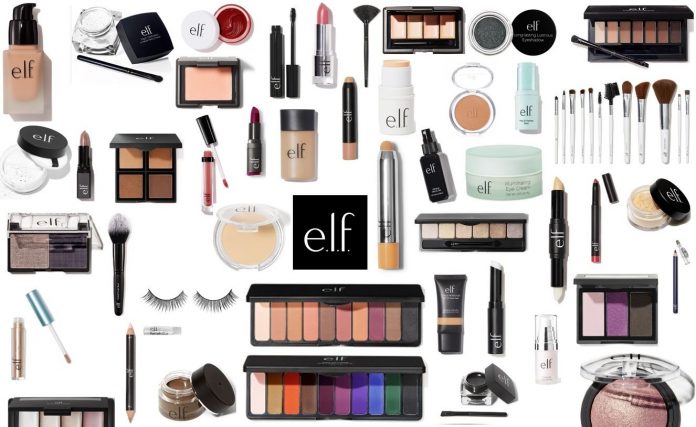Here are 8 negative effects of prolonged use of facial remedies and cosmetic.
Numerous items you use on a regular basis for makeup contain harsh chemicals that can interfere with the protective activities of your skin’s barrier, making it simpler for viruses to enter your body.
Regular makeup use can have a number of negative consequences on your skin’s health and natural radiance.
This does not preclude you from wearing cosmetics, though. You may continue to wear makeup every day if you adopt a few good skincare habits and use products that are gentle on your skin.
8 Negative Effects of Regular Makeup Use
It’s critical to comprehend how the makeup you’re currently wearing is impacting your skin. It’s time to take action if you are noticing one or more of the adverse effects listed below.
clogged pores
Your skin pores could become clogged if you often apply cosmetics and leave it on for an extended period of time. Your skin becomes more prone to pimples, acne, and other face skin issues as a result of this restriction of airflow. Bumpy skin may also be present around your eyes.
premature aging
A crucial aspect of maintaining the health of your skin is shielding it from UV ray damage. You put your skin at risk of UV damage when you apply cosmetics after forgetting to apply sunscreen. Long-term use of makeup combined with UV exposure can hasten the appearance of wrinkles, fine lines, and age spots. Additionally, if you don’t take off your makeup before bed, it may enter your pores, damage your elastin, and result in wrinkles.
Oily or Dry Skin
Unsuitable makeup might make your skin drier or oilier depending on your skin type. If they use cosmetics that isn’t designed for their skin type, those with dry skin may experience acute dryness. Similar to this, people with oily skin may produce more oil than usual after using the incorrect items.
Breakouts
A hormonal imbalance, certain drugs, an unhealthy diet, etc., can all cause breakouts. However, using makeup frequently can make matters worse and lead to breakouts that happen more frequently.
Study shows female have more chances to die after heart attack than men
According to dermatologists, those with acne-prone skin should use less makeup. Lessening the amount of makeup you use can also help with blackhead reduction and skin health.
Allergic Response
Despite having a similar appearance, the components in makeup products vary from brand to brand. Products made with gentle components are not damaging to your skin. Allergies, however, might be brought on by cosmetics containing hazardous chemicals like paraben and SLES. Such products may worsen any allergies you have if you have them to particular substances. Your skin may become unpleasant and itchy as a result.
color changes
While wearing makeup every day has drawbacks, sleeping with it on all night can seriously harm your skin. Free radicals, which are produced as a result of pollution and sunlight, can [1] damage collagen, weakening your skin and changing the color of your skin. For instance, long-lasting lipsticks that are worn for longer than 10 hours cause your lips’ color to deepen because they contain chemicals that prevent oxygen from reaching your lips.
Eye Illnesses
Your eyelid and the area around it are both sensitive and thin. Additionally, this is where you apply cosmetics like mascara, eyeliner, eyeshadow, foundation, and concealer. Your eyes can suffer severe harm if there is any form of irritation in your eye makeup. Even an eye infection may result from it.
Before applying any eye makeup, the Food and Drug Administration suggests reading the ingredients. Don’t use items with dangerous chemical ingredients. If applied for a long time or without being removed before bed, eye makeup products can potentially cause dark circles.
cancer
One of the most prevalent cancers in the world is skin cancer. One in five Americans, according to the Skin Cancer Foundation, develop the condition.
The American Cancer Society has also noted that there is not enough data to draw any firm conclusions about the link between cosmetics and skin cancer.
Ingredients including formaldehyde, coal tar, arsenic, silica, and chromium are known to cause cancer, however there isn’t enough proof to link the two.
























































![[FREE FREE MONEY] Predict and Win a Guaranteed GH¢200 From Us EVERY WEEK](https://wordpress.ghanatalksradio.com/wp-content/uploads/2022/02/Predict-and-Win-Final-09-03-2021-218x150.jpg)
![[Predict & Win – 8th/Oct.] WIN A Guaranteed ¢200 From Us This Week](https://wordpress.ghanatalksradio.com/wp-content/uploads/2021/10/maxresdefault-16-218x150.jpg)
![[Predict & Win – 2nd] WIN A Guaranteed ¢200 From Us This Week](https://wordpress.ghanatalksradio.com/wp-content/uploads/2021/09/maxresdefault-50-218x150.jpg)
![[Predict & Win – 25th] WIN A Guaranteed ¢200 From Us This Week](https://wordpress.ghanatalksradio.com/wp-content/uploads/2021/09/maxresdefault-36-218x150.jpg)
![[Predict & Win – 18th] WIN A Guaranteed ¢200 From Us This Week](https://wordpress.ghanatalksradio.com/wp-content/uploads/2021/09/maxresdefault-23-218x150.jpg)











![[National cathedral] See full list of churches that have contributed since 2018](https://wordpress.ghanatalksradio.com/wp-content/uploads/2020/09/Ghana-National-Cathedral-GhanaTalksRadio-100x70.jpg)



